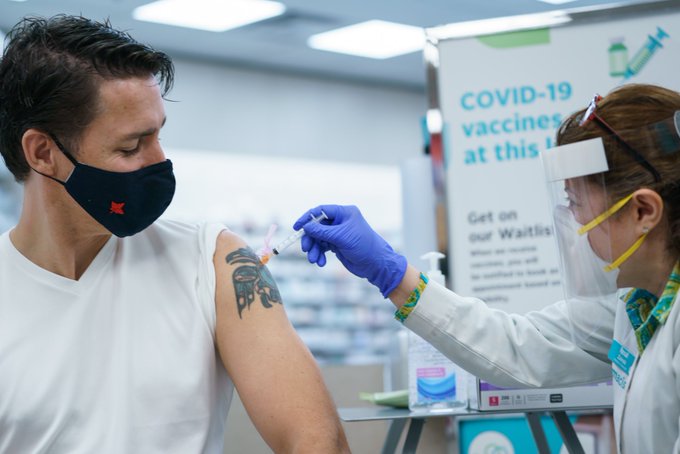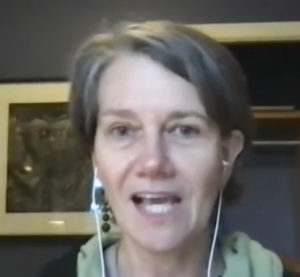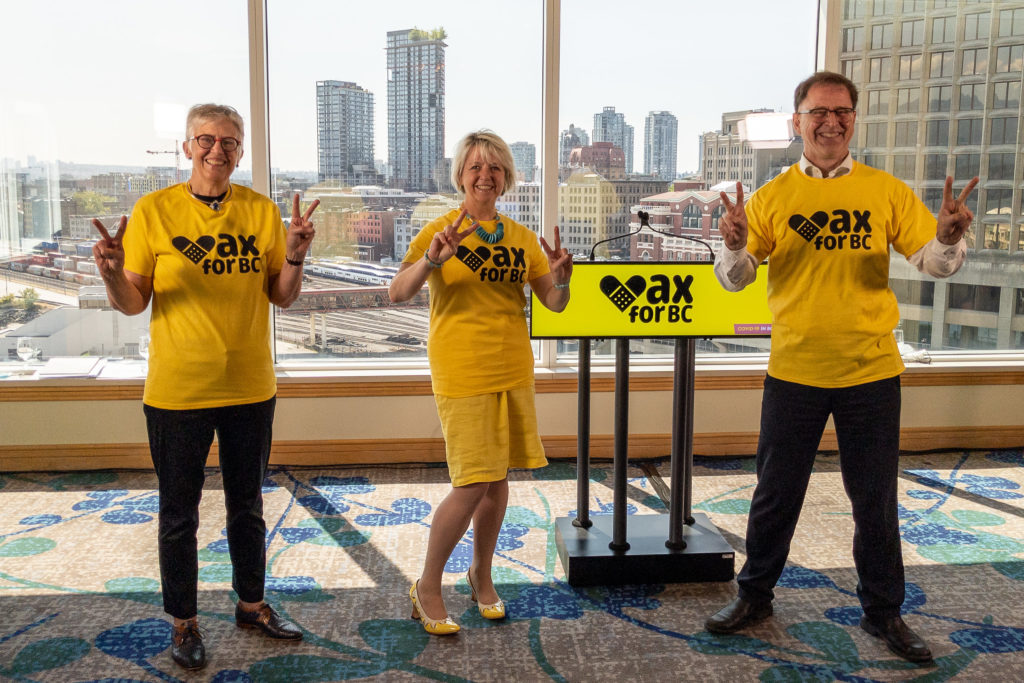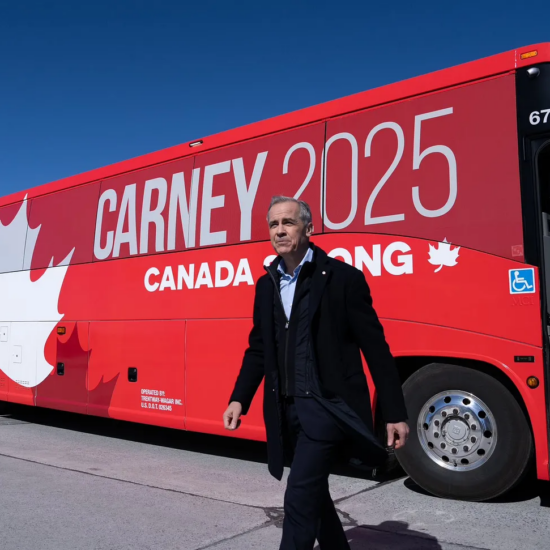
Bob Mackin
Provincial health officer Dr. Bonnie Henry was evasive when asked whether Canada should follow the U.K. and call a national inquiry into the handling of the COVID-19 pandemic.
But she thinks “we need to move on” from B.C.’s 2021 heat dome disaster that killed 619.

Dr. Lyne Filiatrault (PoP BC/YouTube)
The BMJ, one of the world’s leading medical periodicals, published a special edition in July critical of Canada’s federal and provincial response to the pandemic, which has resulted in the deaths of at least 52,750 people. BMJ noted that Canada’s 1,372 per million death rate exceeded the global average 855 per million, despite universal healthcare and a high vaccination rate.
“An independent, national inquiry is needed to review Canada’s COVID-19 response, draw lessons, and ensure accountability for the past and future pandemic preparedness,” said the BMJ.
“I don’t have an opinion on whether we need a national inquiry, I think there’s pros and cons to it,” Henry said during an Aug. 10 news conference about ongoing wildfires and the upcoming heat wave. “I think that it’s very important for us to record what we went through, to understand the lessons from it and to really look at how do we have more robust, resilient communities.”
Lyne Filiatrault, a retired emergency room doctor and co-founder of the Protect our Province B.C. (PoP BC) coalition, is not optimistic Canadians will get the inquiry they deserve.
“The whole pandemic has been a political response and so no political party wants an inquiry, because it would be an inquiry into how they mismanaged the pandemic,” Filiatrault said, pointing to snap B.C. and federal elections in fall 2020 and 2021, respectively.
Last December, the B.C. NDP government released the results of what Filiatrault called a “sham” review. The authors, a trio of ex-senior civil servants, were not allowed to analyze Henry’s decision-making. Previously, Henry and her medical health officer subordinates did not participate when seniors advocate Isobel Mackenzie reviewed the toll on long-term care homes in 2021.
Filiatrault said Henry “has an inability to be accountable and an inability to learn.”
“If you look at the SARS commission of 2003, where she was intimately involved in the Toronto response, she learned nothing from that,” Filiatrault said.
Henry was the associate medical officer of health for Toronto. Some of her testimony to the Ontario legislature’s Justice Policy Committee was included in the SARS inquiry report by Ontario judge Archie Campbell.
“I think one of the things we learn over and over again in a crisis is that you can never do just enough,” Henry told the committee. “If you stop the outbreak, you’ve done way too much and you overreacted; if you don’t stop the outbreak, you clearly didn’t do enough.”
More than two years ago, just before the publication of her book about the early days of the pandemic, Henry admitted she was preparing for various public reviews of her work.

VCH chair Penny Ballem (left), Dr. Bonnie Henry and Minister Adrian Dix in July 2020 (BC Gov)
“I think there’s going to be lots of time — I’ve said this before many times — lots of time for the recriminations, the class action lawsuits, and the public inquiries,” Henry quipped on a Feb. 10, 2021 web conference.
As for the June 25-July 1, 2021, heat dome, Henry did not call an emergency news conference or issue any emergency orders. She only signed-off on a heat warning bulletin from Vancouver Coastal and Fraser Health late in the afternoon on June 25, despite meteorologists warning since the previous weekend that a record heat wave was incoming. That bulletin was sent to media outlets after 5:30 p.m.
Ambulance paramedics and emergency room doctors and nurses were swamped with patients during and after the first weekend of summer. It was the biggest heat wave in the region since 2009 and most-severe solstice-week heat wave since 1925.
Chief Coroner Lisa Lapointe’s June 2022 report found most victims were elderly, low-income, suffering a chronic disease and living alone without any cooling device, such as a fan or air conditioner.
“It’s unusual in British Columbia, in particular, for us to have been concerned about heat until we had that extreme event and tragic event in 2021, so we need to move on from that,” Henry said. “One of the things that we have done, is we have a very coordinated heat response committee that has been meeting regularly, we’ve been meeting several times this week. So that we have, everybody has, the information they need in the community.”
Said Filiatrault: “The 619 deaths that we had back in 2021, it’s shameful, completely shameful, completely unprepared, and again, showed that this government, part of the problem with the response is always reactive, never proactive. So I’m glad now they’re sounding the alarm. But where are the air conditioners for people that need them and can’t afford them?”
In June, timed for the second anniversary, the NDP government announced a $10 million program to distribute 8,000 air conditioners through BC Hydro to poor and infirm people. But fewer than 400 had been installed as of early August.
Environment Canada meteorologist Bobby Sekhon said the heat wave over the next week will be strong due to a ridge of high pressure building offshore, but less severe than the 2021 heat dome.
“That was an extremely strong ridge of high pressure coinciding with some of the longest days of the year,” Sekhon said. “Now we’re about seven weeks removed from solstice. We’re dealing with longer nights and shorter days.”
Sekhon said there may be a multi-day heat warning issued as early as Sunday for Vancouver Island, the South Coast and Southwestern Interior.
Support theBreaker.news for as low as $2 a month on Patreon. Find out how. Click here.











